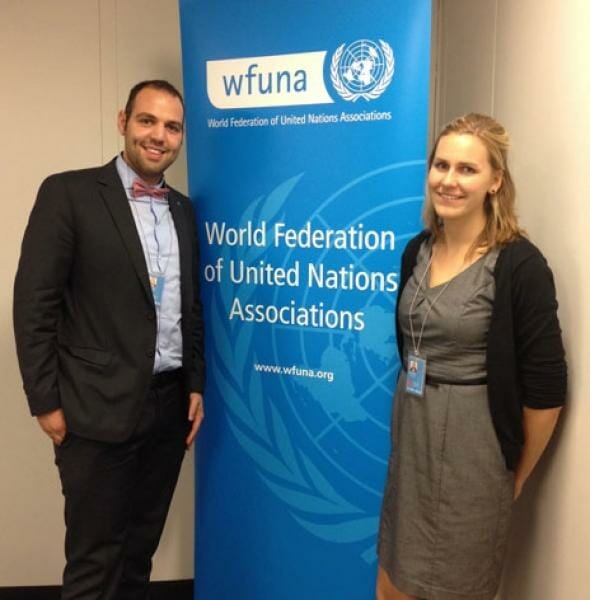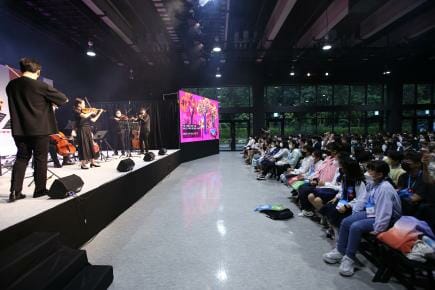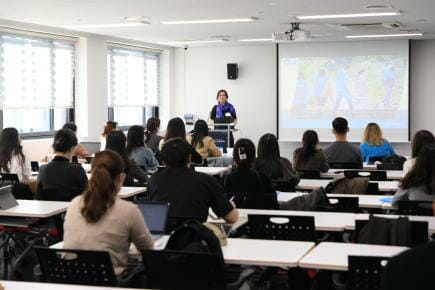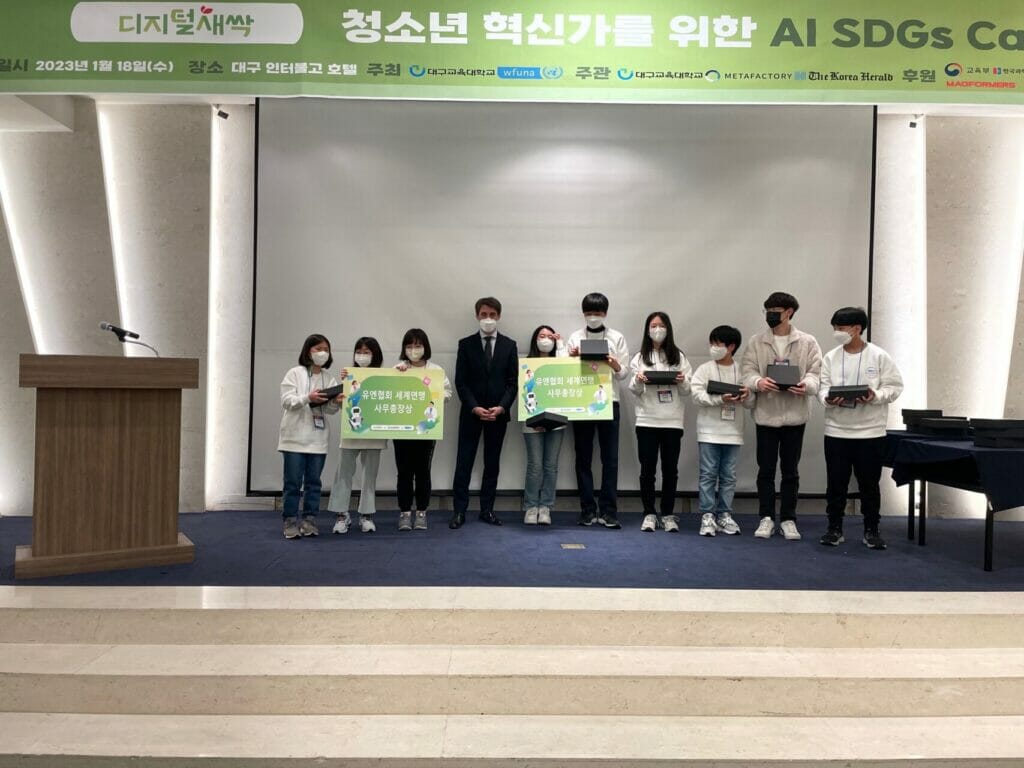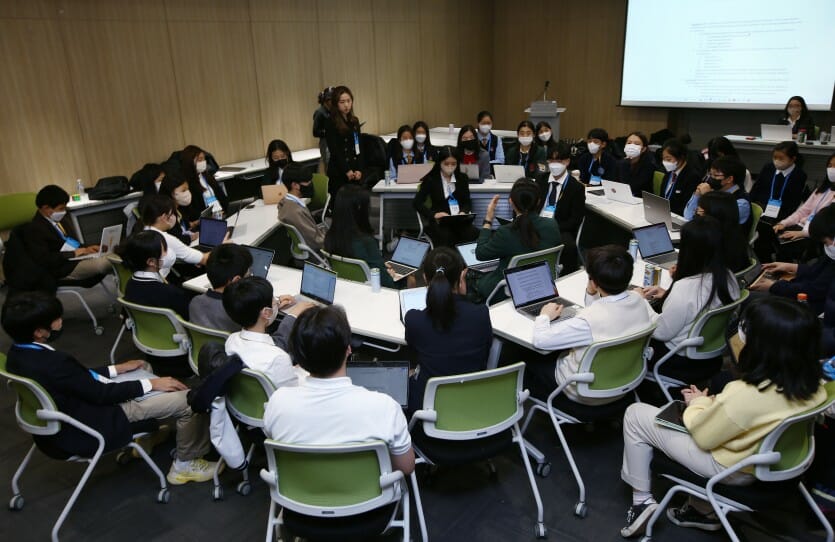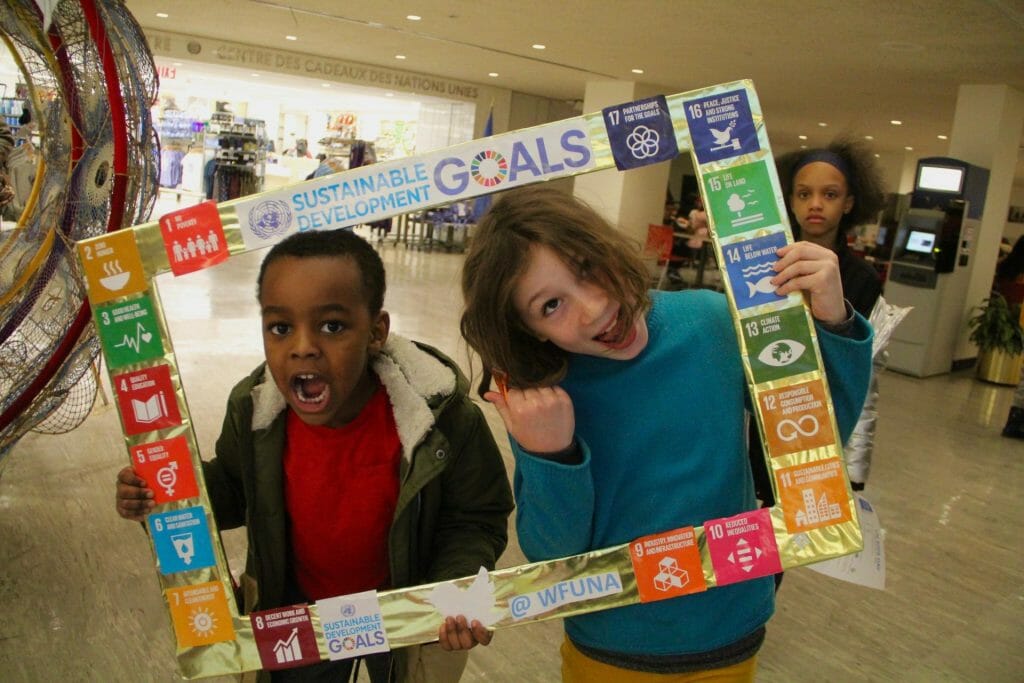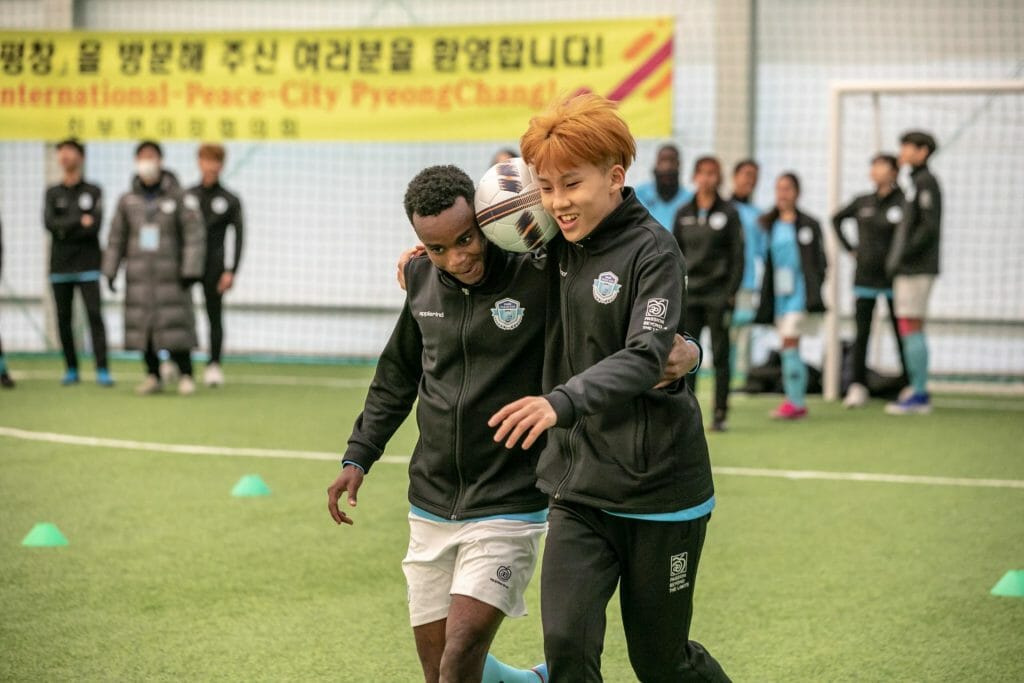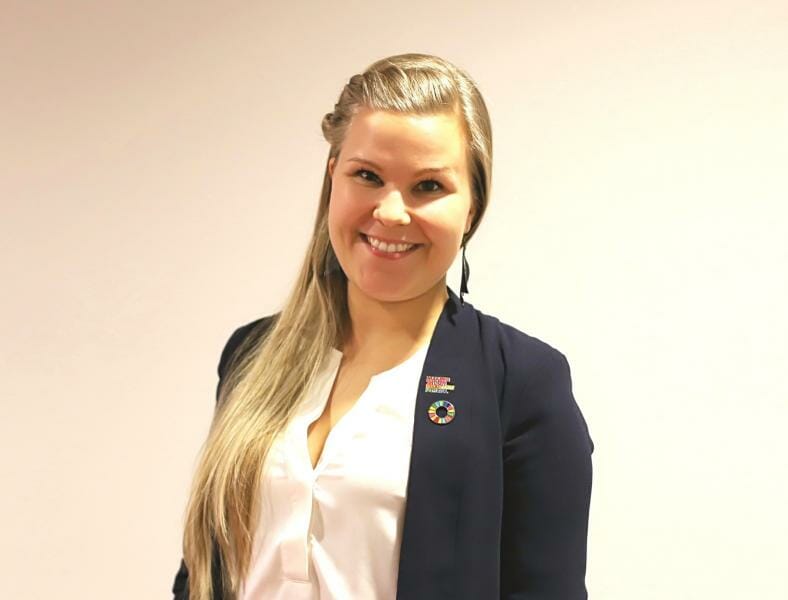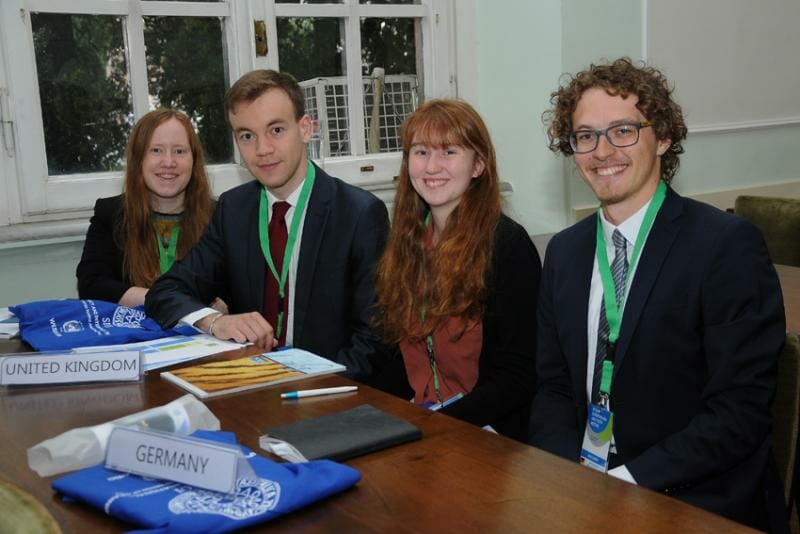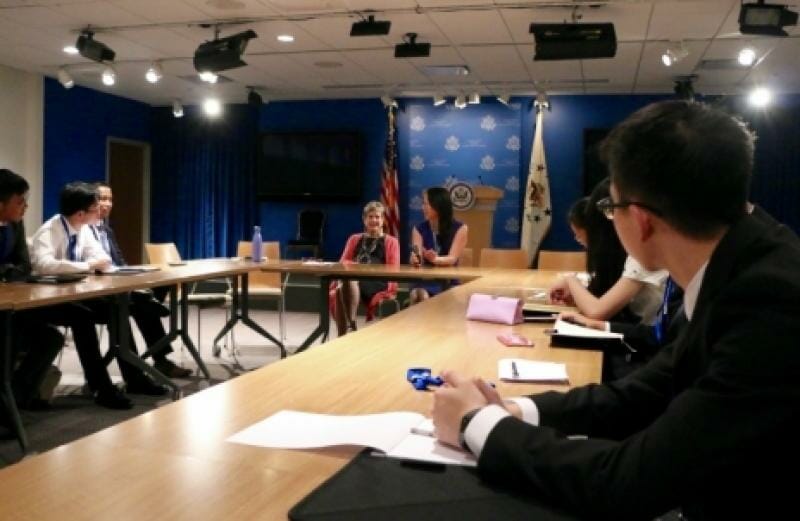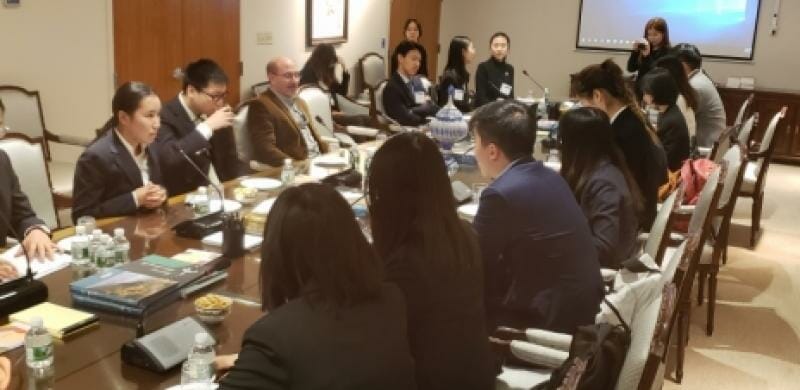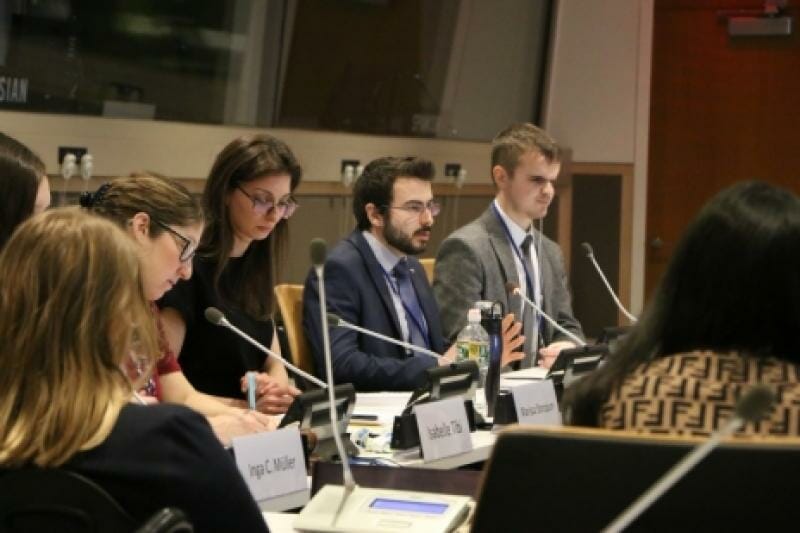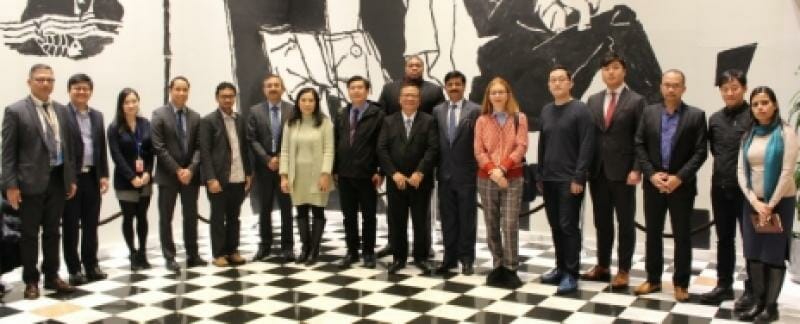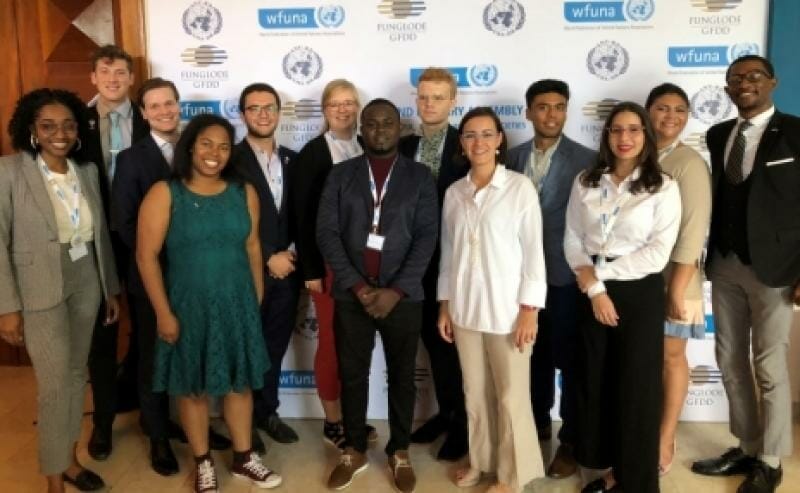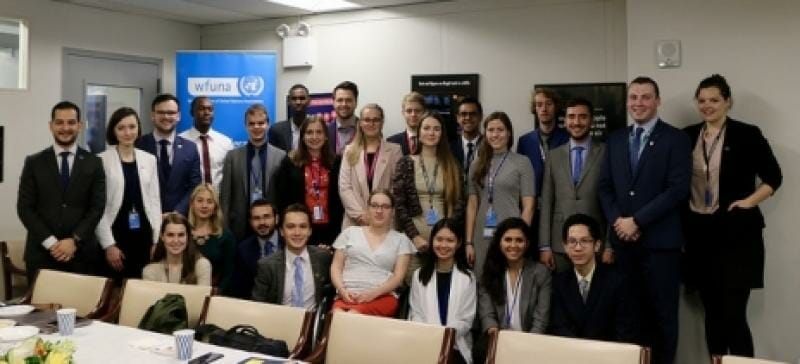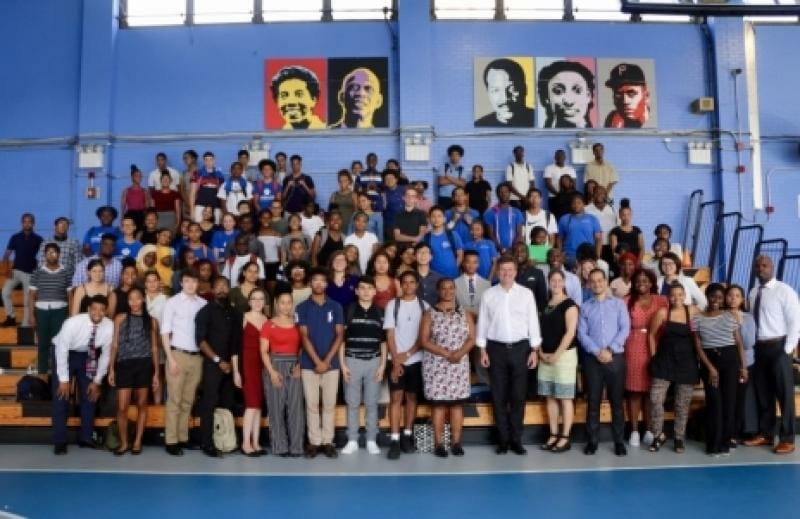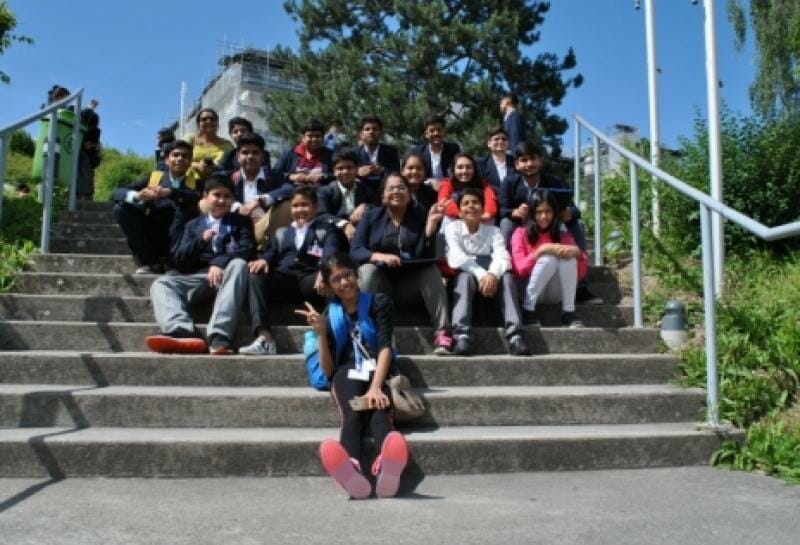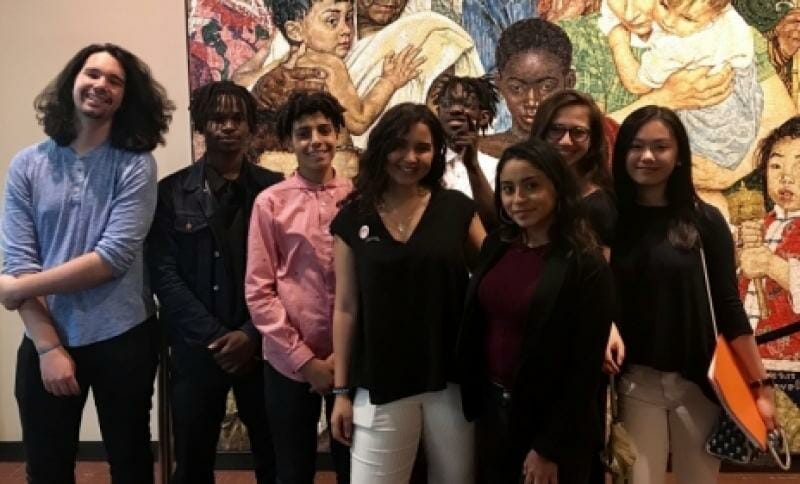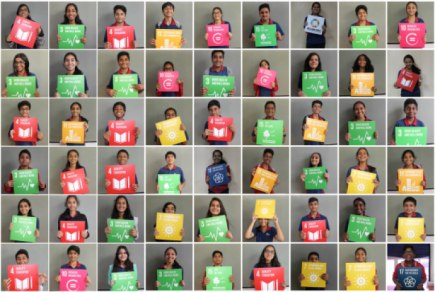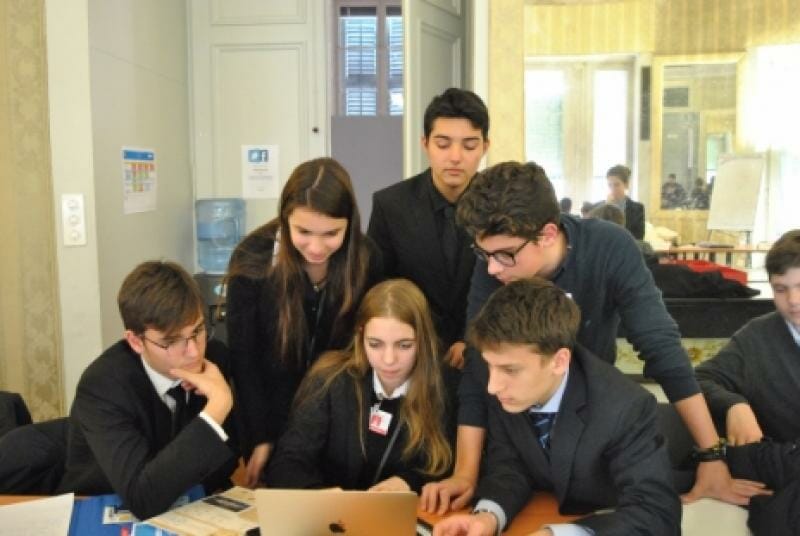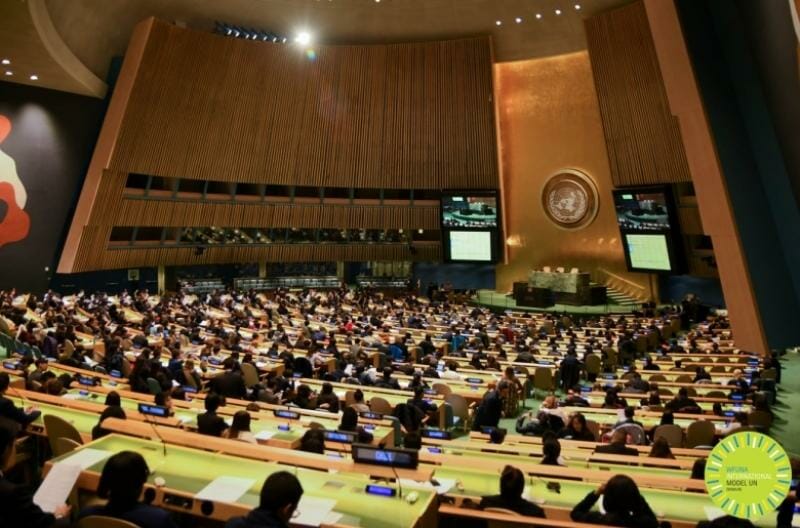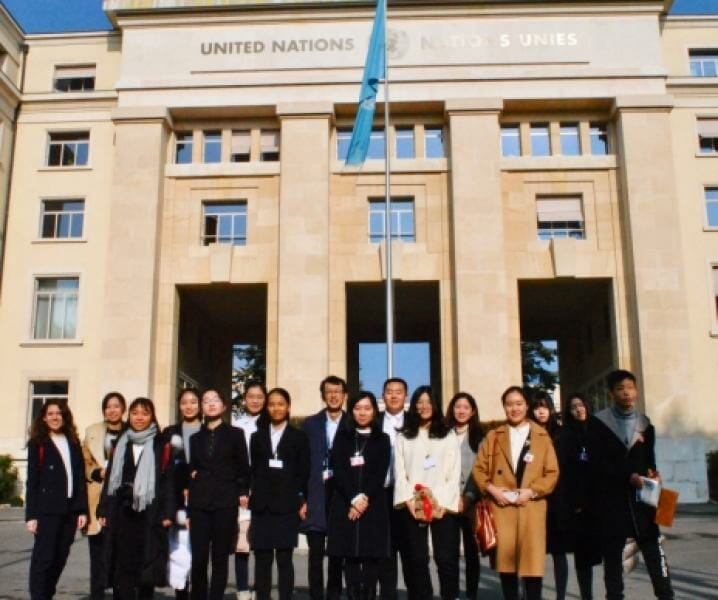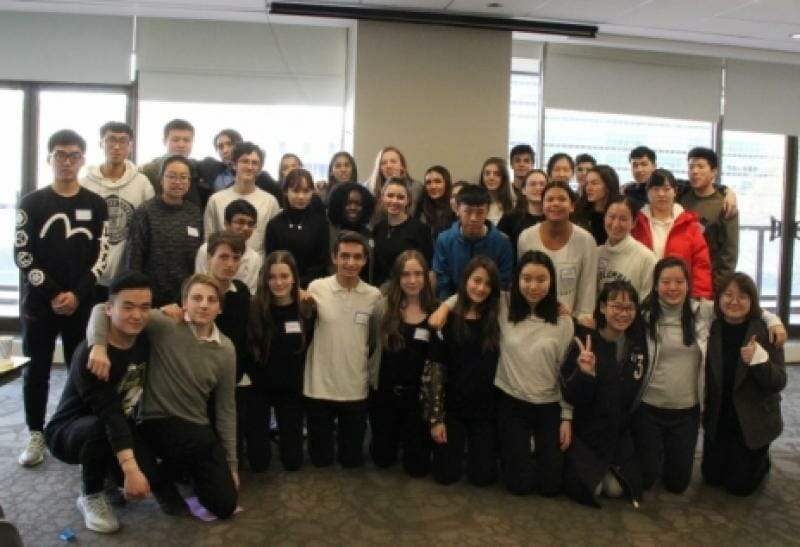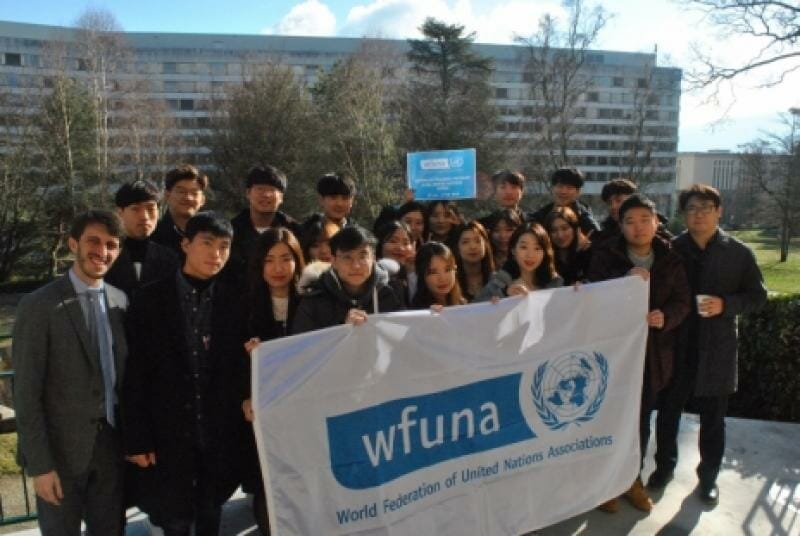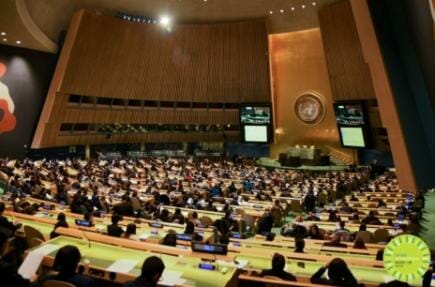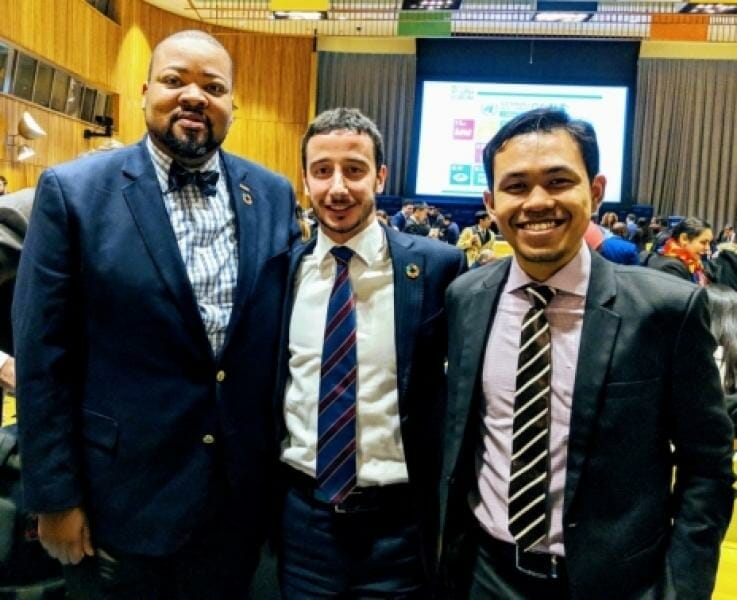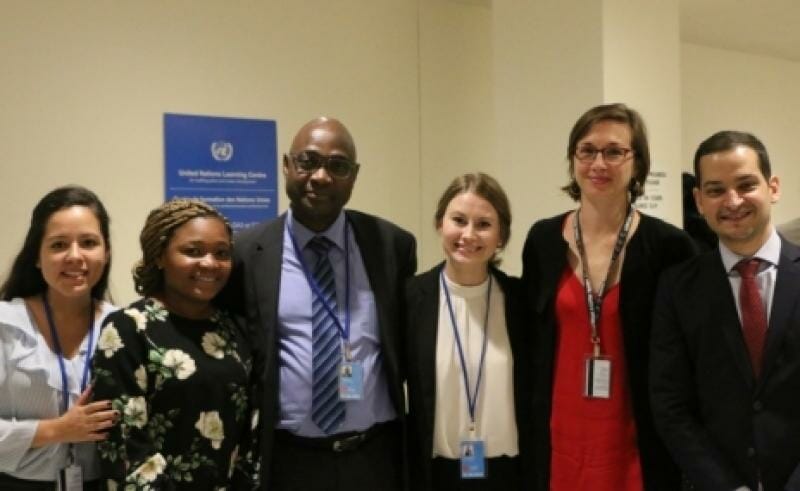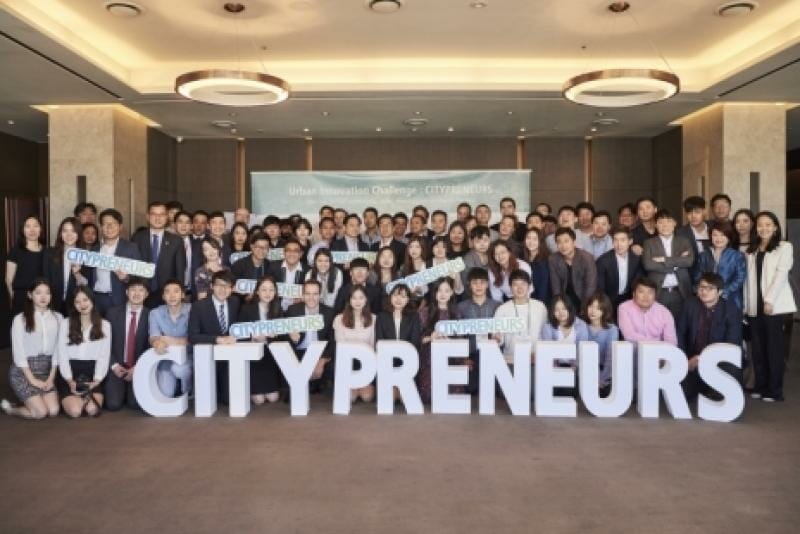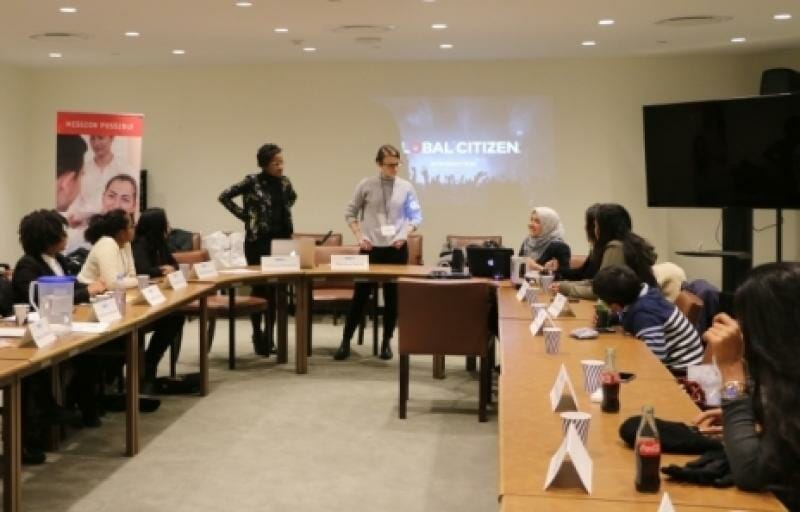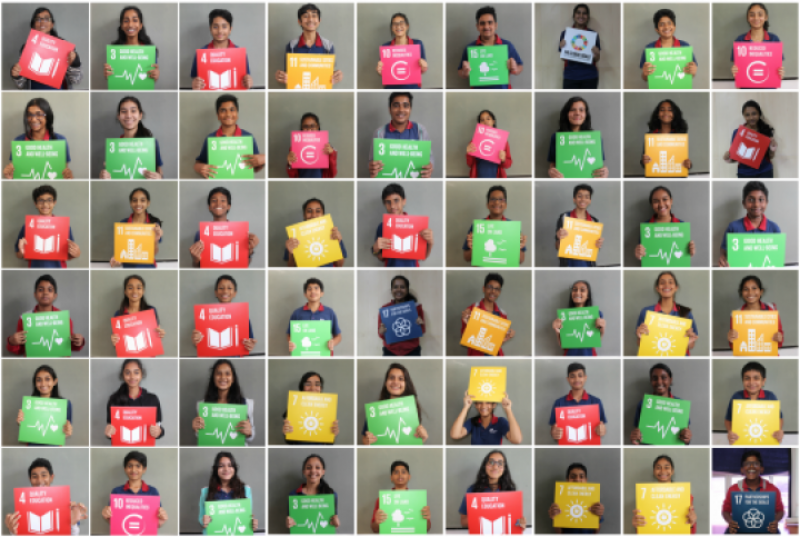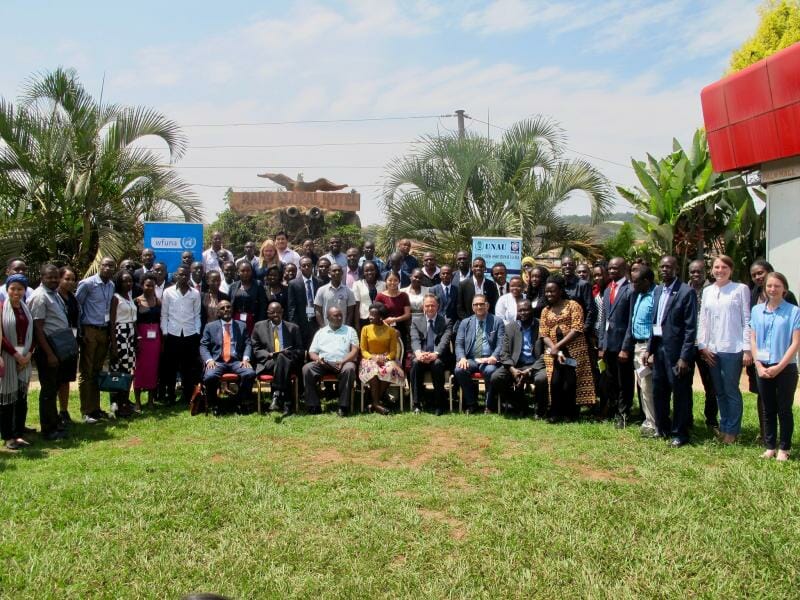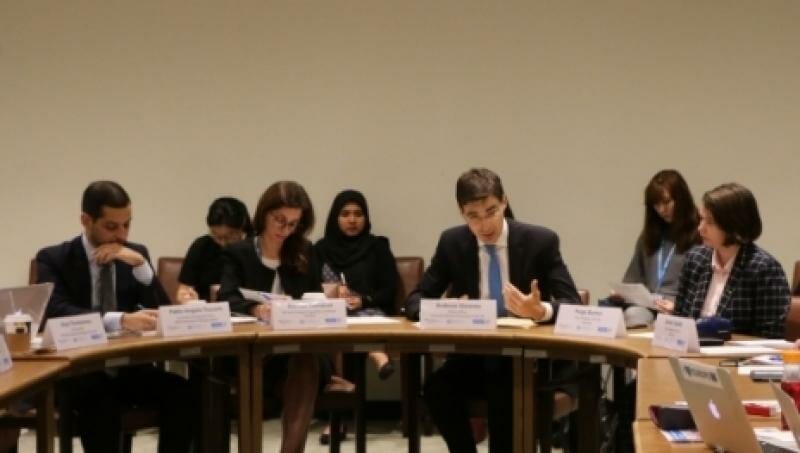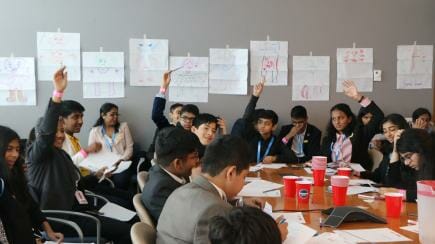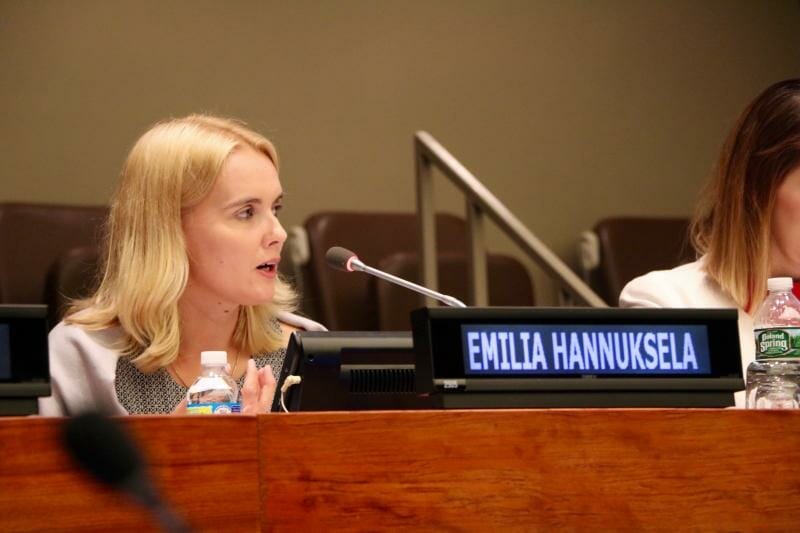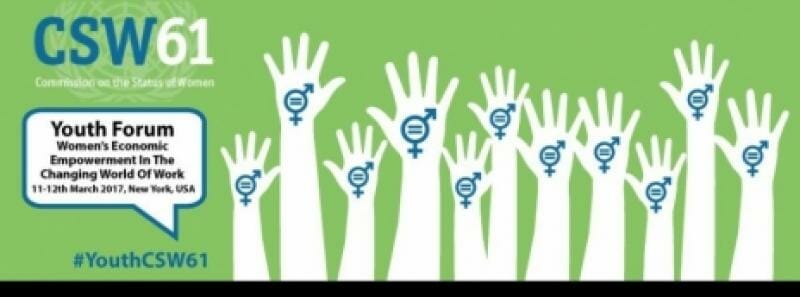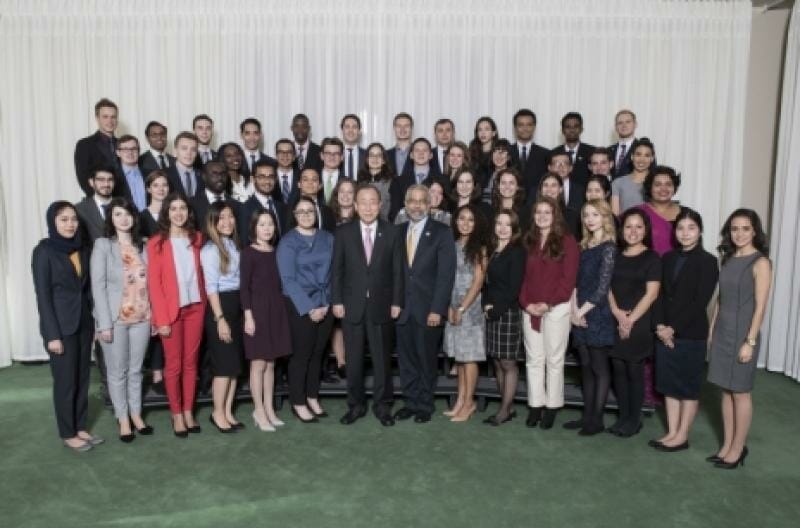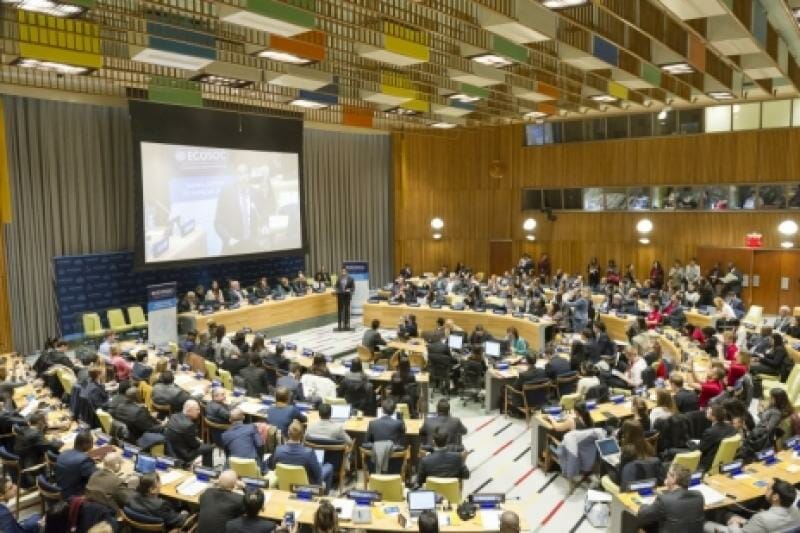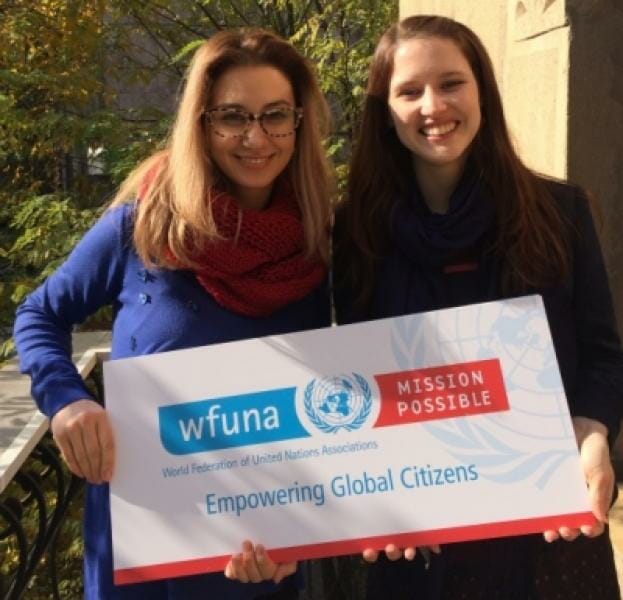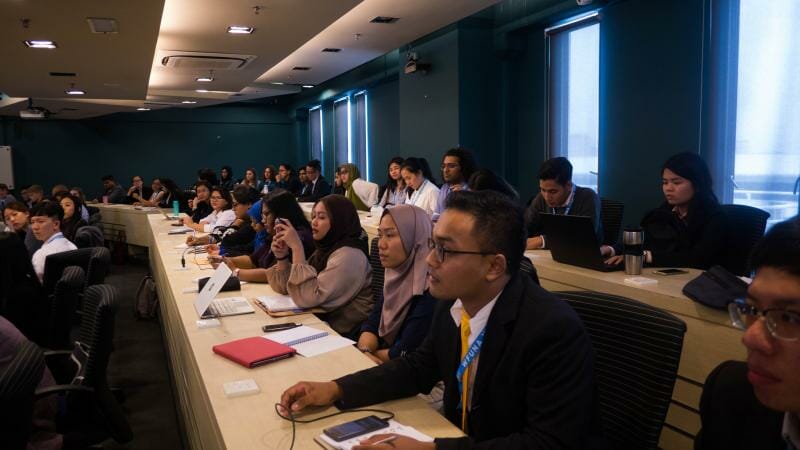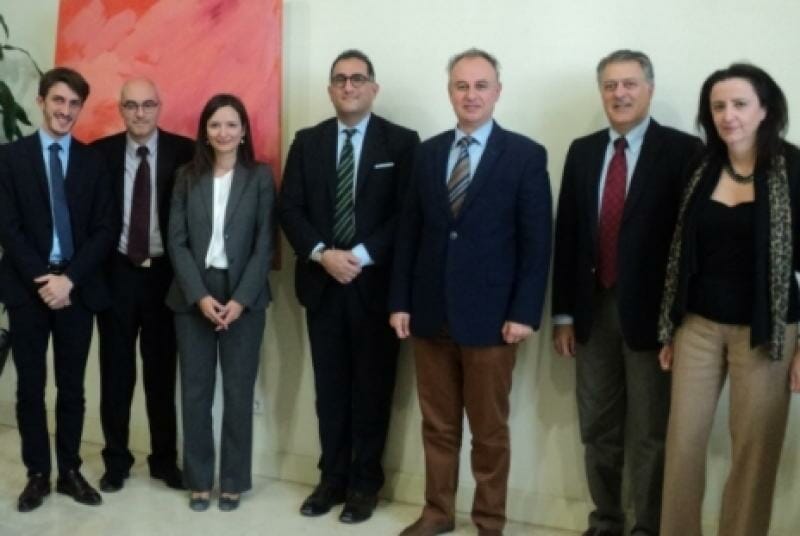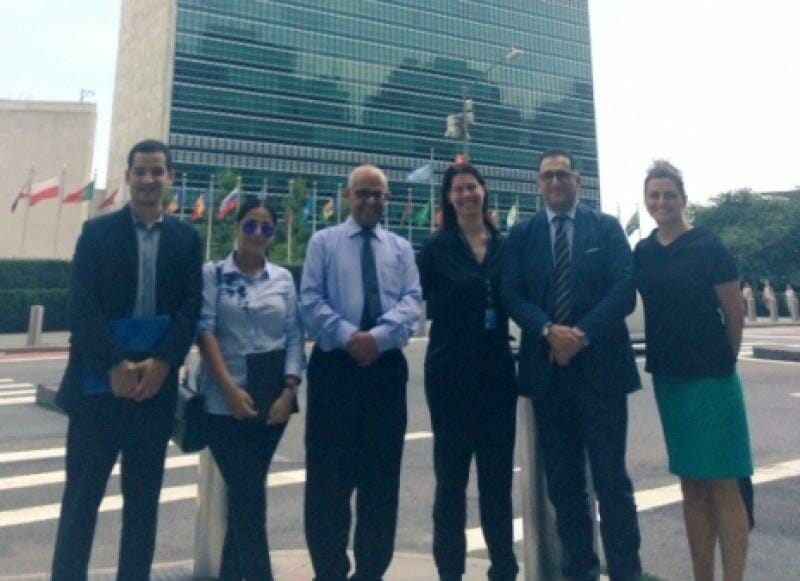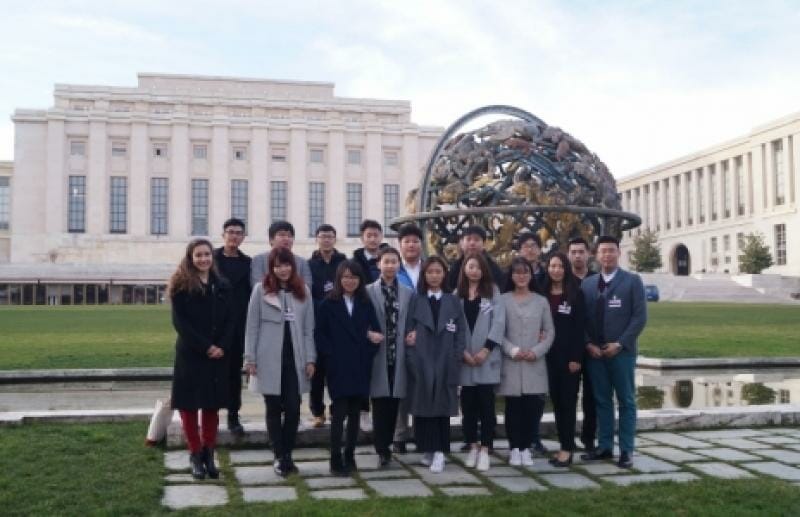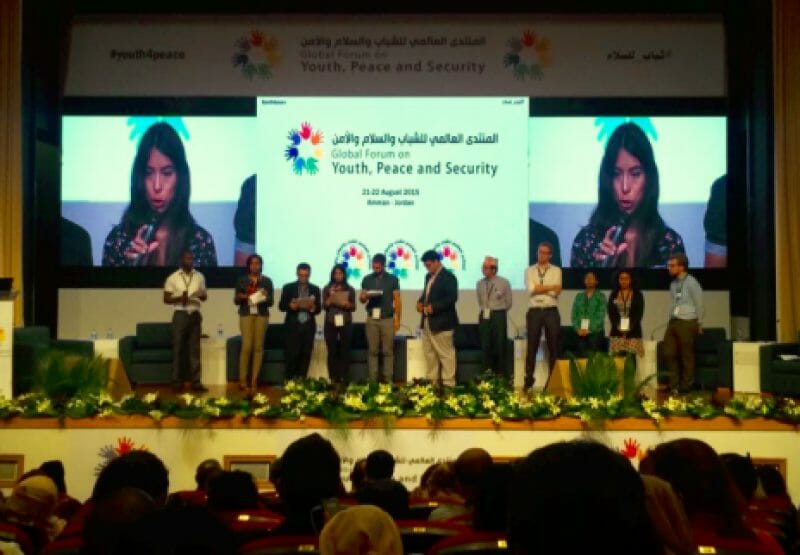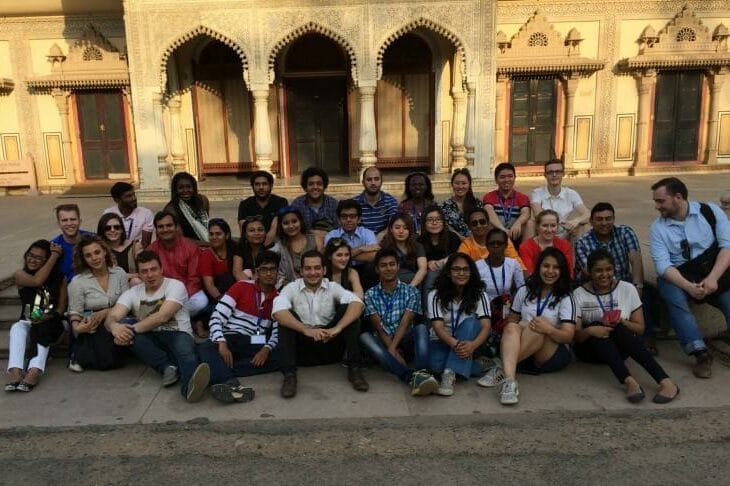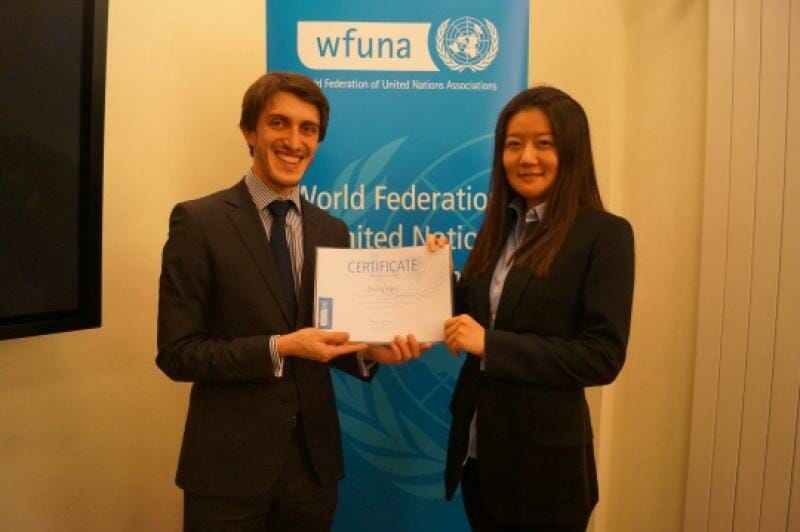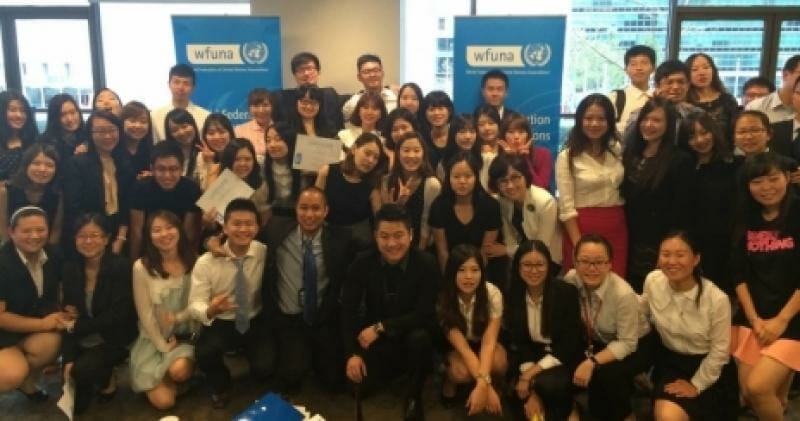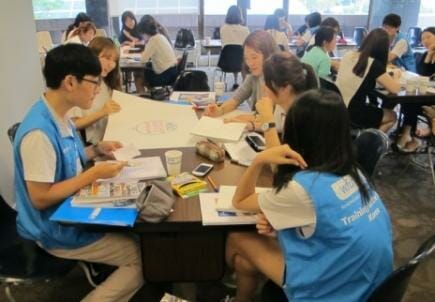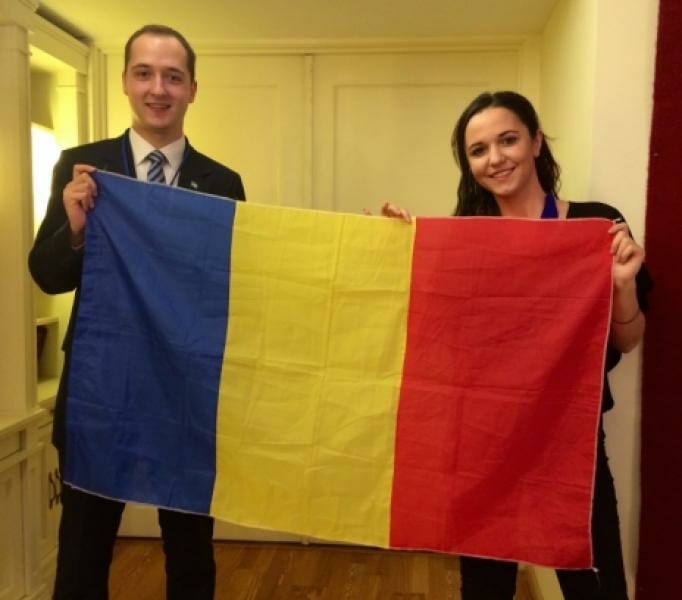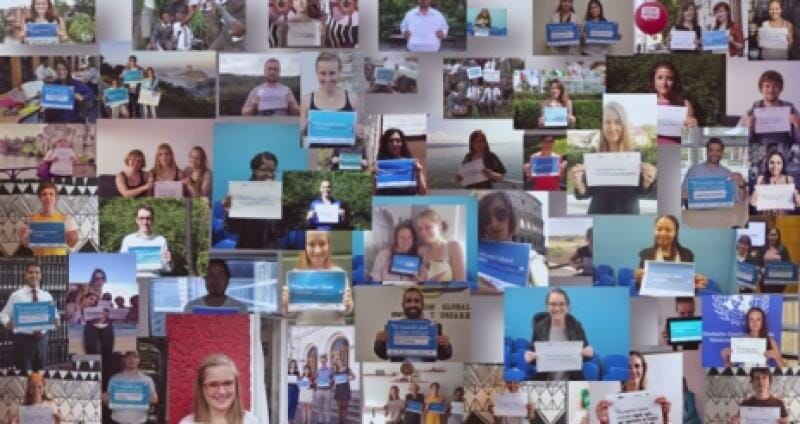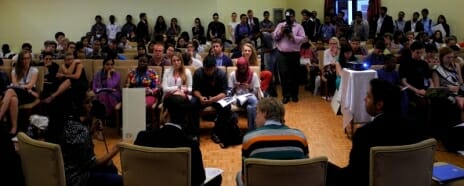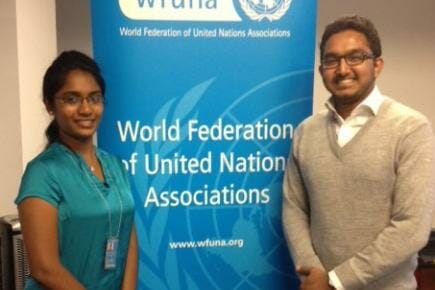We had the pleasure of chatting with Elise Zerrath and Florian Nowack, the 2013 UN Youth Delegates from Germany, when they were in New York last fall for the General Assembly. Elise, 26, is from Lübeck, Germany and studied International Relations and Human Geography from St. Andrews University in Scotland. Florian, 24, hails from Lohne, Germany and studied International Business and Intercultural Studies at Heilbronn University. Here, they expanded on their journey as youth delegates as well as why more young people should push for a Youth Delegate program in their country.
What motivated you to become a UN Youth Delegate?
Elise Zerrath: For me personally and I think as well for Florian, we were interested in youth politics before applying. I also have a strong interest in international politics. So, being a youth delegate is ideal to combine youth politics with international politics.
Florian Nowak: I personally have been in youth politics and youth work for 10 years now. Since 2011, I have been active as a German Representative in the European Youth Forum, which is the biggest umbrella organization in Europe for youth councils and youth organizations. So, what I have been experiencing there was how interesting it can be when so many young people come together and what does it mean to be young or a young person in Europe.
I have been, at least on paper, in contact with the United Nations and its work, and I thought it would also be nicer having this national background and European background to try to tackle the international floor, to really give a strong voice for young people from Germany [at] the United Nations.
How were you prepared to become a Youth Delegates? Is there a process to prepare you to fit this role?
Elise: Our mandate began in January 2013. We toured for about four months through our country. We spoke to a lot of youth-led organizations as well as school classes. This year we also tried to put a specific focus on socially marginalized and disadvantaged groups, so we went to a jail for young women. We also went to talk to young homeless people and to young prostitutes, as well as women refugees. We tried to get different opinions on topics that are of relevance because now when we talk about violence against women, we know the perspectives from Germany and bring them here.
Florian: When it comes to consistency of the program, one very strong factor of the Youth Delegate Program in Germany is that we have many knowledge transfers. Before going to the Youth Ministry, we had a knowledge transfer with our predecessors. It was for two days and it was very intense. At the end, our heads were burning. It was so much content put into our brains.
What did you tell to these people that did not have any idea about what the UN does or what you were going to do?
Elise: We didn’t see our role so much as explaining to them how the United Nations works and what each body is, but we rather saw our role in listening to them and just getting them to talk about their ideas about a better society, their concerns, and also to get them interested in politics in general and get them to form a political opinion.
So, especially when we went to the jail, it was rather successful. They started thinking about the problems they face in their immediate environment. From that, we could take it to a different level and talk about, for example, what they would struggle with when they leave prison, how do they start a new life, how do they find employment opportunities.
Florian: During our tour through our country, our main goal at each and every stop was to develop, in consensus, three to five recommendations or demands that young people have. For example, when we went to the Young Greens we talked about environmental justice and we had input from them, and we also gave a presentation about what we are doing, and also about what the UN is doing in the field of environment.
And then, we had group talks and discussions. The group had the task to develop [an opinion] in consensus, because this is what the United Nations does, so if they did not manage to build up an opinion in consensus, we said: “Now you see how difficult our mandate is because you are a more or less homogeneous group, but the UN is not. So if you are not able to build an opinion, be sure that at the United Nations it will not pass.”
That was very interesting! At the end, we had three to five demands at each and every stop, and we did 30 to 40 stops, or even more. At the end, we had more than 130 demands on very different topics, from Sustainability, to Inclusion, to Education, to Participation, to many other things.
Tell us about your experience at the GA. What was that like?
Elise: It has been very interesting so far, with our speech during the first day of the GA, so it was a big start. And from then on, we have been mostly working with the other youth delegates to prepare for the informals, which are taking place still now, for the youth resolution. Another big thing that was very time-consuming and, hopefully at the end it was successful, was our side-event on LGBT rights. We purposely chose a quite controversial topic that is still largely seen as a taboo within the United Nations to raise awareness for it and to change political opinions on it.
Florian: Maybe one priority for this week is also to try to get as many delegations on the table to talk about the implementation of the Youth Delegate Programs where they do not exist so far. For us, it’s very important that especially in non-European continents or countries, to try to implement or work on establishing the Youth Delegate Program. We are more than happy or willing to help where we can, with our input, with our experience. So, for example, we contacted some Missions to really try to encourage them to think about establishing a Program. We hope that we can spread the word and push it forward because at the end, it’s really about representation.
What recommendations would you have to these missions in terms of improving the Youth Delegate Program?
Florian: I think you really should be aware of the fact that there are, in each and every country, partners that can help you. Civil society might not be that strong in each and every country, but still you have UNA’s in many countries, for example. You have Youth Councils, youth-led organizations, Youth Ministries that are in charge of youth policies. At the end, you have to bring them to the table and discuss it.
Another point is to be very creative and innovative installing this program. There are so many good examples which differ also a lot from each other that I think that there is always a suitable solution for a country. There is no excuse!
Elise: And we always say, “If there is a will, there’s a way.” Because young people especially, if they want to campaign, they are creative and they will find ways.
What is your message to youth themselves to motivate them to push for this?
Elise: For many young people, it is quite important to let their voices be heard at the United Nations. They can make a difference here. Maybe there are a number of young people that are not aware that a lot of policies that are made for them are also made here. But I think that it is important for them to know that their issues are discussed here, and they know best what is of interest for them. They are the experts in youth policies and they are the ones with the most interest in sustainable solutions, because they are the ones affected by the decisions taken.
Florian: I wanted to mention that having a Youth Delegate Program is not about making it possible for two young people to pimp their CV’s and go to the United Nations and grab this unique opportunity. As Elise has already said, our mandate is to try to get them active at each and every level.
What are your plans when you return to Germany? What will you do with this experience?
Elise: When we come back, we will be quite occupied with selecting our successors but also with feed-backing the German Parliament and our supporters, the UNA, the National Youth Council, the Ministry for Youth and the Foreign Ministry on what we have achieved or not achieved, and also to see what can be implemented in Germany. Because often times a lot of things are discussed here but they are not brought back to the national level. They are not actually put into action. So what we try is to bring back what we have learned to decision makers in Germany.
Florian: We try to really work on the legal framework in Germany concerning young people and children. So we go to our Parliament and join the working groups and try to say what we have done at the United Nations.
Also, because many youth organizations that we have visited before want to know what concrete things can we now take from the United Nations that are relevant for our work. Then we have to find some good examples why the UN is also relevant for them and how they can strengthen the work of the United Nations or implement it in their work. So this will be quite challenging I would say.
Tell me about the role that your UNA played, either in the process or the route to GA.
Florian: It’s a very, very strong role that our UNA plays. It’s one of the two supporting organizations. The UNA is quite active in helping us find nice tour stops, in the PR of our work, in reaching out to many young people but also in the selection process. They are always very active as it is a four-round selection process. They are quite active selecting the Youth Delegates. Especially when it comes to UN questions and the system and maybe also giving us context. So, they are quite useful and I think that the program would be of less relevance if we didn’t have the UNA on board.
How do you see the relationship between Youth and the Post-2015 Development Agenda?
Florian: The main thing that we were asking ourselves prior to this GA or in general within our work is when it comes to these goals and targets we were thinking if it makes sense to have a strong goal just focusing on young people. I think that we came more to the conclusion that it should be more the targets and indicators for young people. We should see each and every topic and see what is the relevance for young people.
Elise: The Post-2015 process is so huge. I find it very interesting. No matter what side event we attended, the bottom line was always “our issue is so important that it should be part of the Post-2015 Agenda.” I’m interested and curious to know how all of these topics will be somehow merged into one big agenda, because in the end there are a lot of issues of relevance, a lot of issues that weren’t mentioned in the MDG’s.
Question from Social Media: What is the most important youth plight the UN is presently addressing?
Florian: When we also talk of the Youth Resolution, there is a very strong feeling that we and many other youth delegates have and that is the focus is more on the question of employment and employability of young people. On one hand, it really makes sense because youth unemployment is a very big issue not only in Europe but also globally. The other side of the coin is that we don’t want to see young people just as manpower or human resources, as you call it in business. We’re really try to work on a more coherent Youth Resolution, and we also see when it comes to the priorities of the Secretary-General and the Envoy on Youth, there’s a lot about employability and entrepreneurship, which can be also a very nice way of getting young people to jobs.
Elise: I think that we would say that employability and employment in general is a means to an end, but not an end in itself. It is a means to an end to socially include young people in society but it is not an end in itself. It should not be the only thing we strive for. It’s not that our only purpose in society is to be economically beneficial. So, employability or employment is a way of being part of society and being included, but definitely it doesn’t stop with employment.
Random Question: What is your favorite band or musician?
Elise: There are a couple. But one band that I have been listening to a lot lately is Bastille and their song “Pompeii.” I think is just hitting the States, but it has been very popular in Germany and the rest of Europe. We tend to sing it when we get up, when we go to sleep…
Random Question: Who is your role model?
Florian: I would say it’s not some musician, but maybe Muhammad Yunus, who is very popular for pushing these microcredits for developing countries or undeveloped countries. I have read many books about Muhammad Yunus and the whole social business development. I really find it interesting. I see the potential. After my mandate I’ll maybe work in this field.


